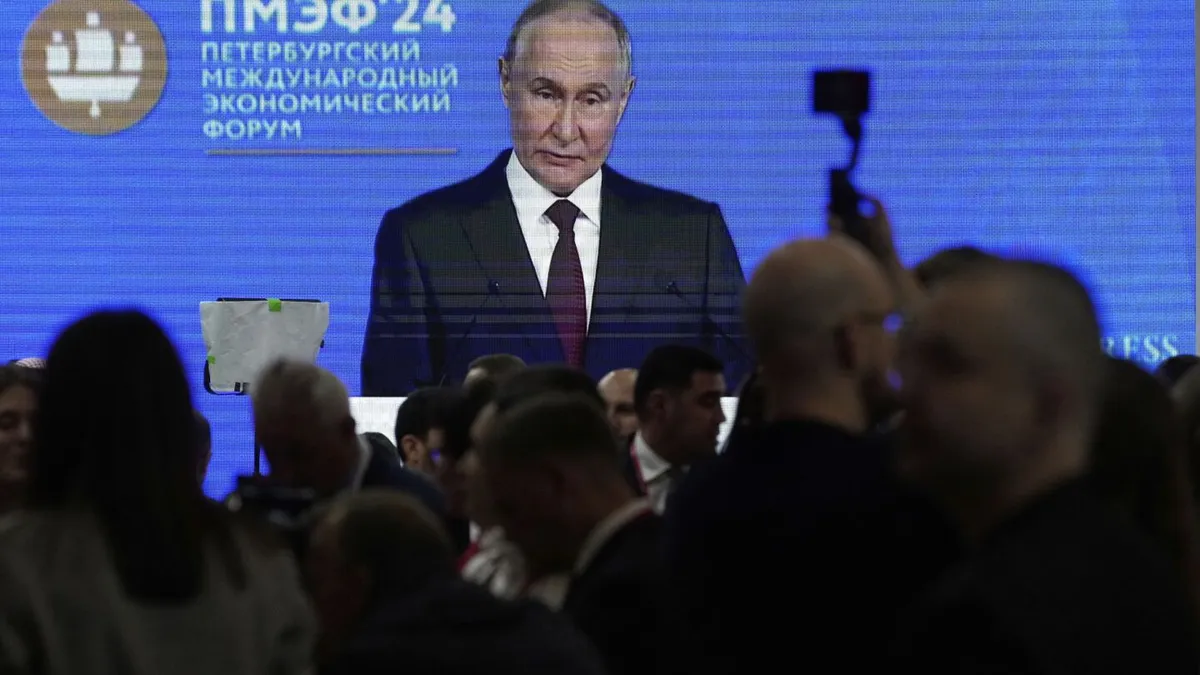
During a recent address at the St. Petersburg International Economic Forum, Russia’s Economy Minister Maxim Reshetnikov issued a stark warning about the state of the nation’s economy. According to reports from Russian media, Reshetnikov stated that the economy is “on the brink of going into a recession.” This annual forum, held in Russia's second-largest city, aims to showcase the nation's economic strengths while attracting foreign investments.
Reshetnikov emphasized that current economic data suggests a significant cooling trend, indicating potential recessionary pressures. He remarked, “the numbers indicate cooling, but all our numbers are (like) a rearview mirror.” This statement underscores the challenges facing the Russian economy, which is grappling with the long-term effects of sanctions imposed after the Kremlin's military actions in Ukraine in February 2022. Despite these challenges, the economy has surprisingly outperformed many analysts' predictions, largely due to high defense spending that has spurred growth and helped maintain low unemployment rates.
While the Russian economy has shown resilience, it is not without its complications. The surge in defense spending has led to inflationary pressures, which have prompted rising wages to keep pace with price increases. This situation has had mixed effects, as many workers find themselves better off financially. Additionally, various incentives, including large recruiting bonuses for military enlistees and death benefits for those lost in the conflict, have increased disposable income in poorer regions of the country.
However, despite these short-term advantages, economic experts are expressing concerns about the long-term sustainability of this militarized economy. The absence of domestic and foreign investments in sectors outside of the military is seen as a critical vulnerability. Economists warn that without diversification and investment in other areas, the economy could face stagnation.
At the forum, Reshetnikov articulated that whether Russia will slide into a recession largely hinges on the decisions made by the government moving forward. He stated, “Going forward, it all depends on our decisions,” highlighting the importance of strategic planning in navigating the current economic landscape.
In contrast to Reshetnikov's cautious outlook, Finance Minister Anton Siluanov and Central Bank Governor Elvira Nabiullina provided a more optimistic perspective. Siluanov acknowledged the economic cooling but suggested that after such phases, “the summer always comes.” Similarly, Nabiullina indicated that the economy is merely “coming out of overheating,” suggesting a potential return to stability.
The discussions at the St. Petersburg International Economic Forum reflect the complexities of Russia's current economic situation. While immediate indicators may signal a recession is approaching, the long-term outlook will depend heavily on government policy decisions and investment strategies. As the global economic landscape continues to evolve, all eyes will be on Russia to see how it navigates these turbulent waters.